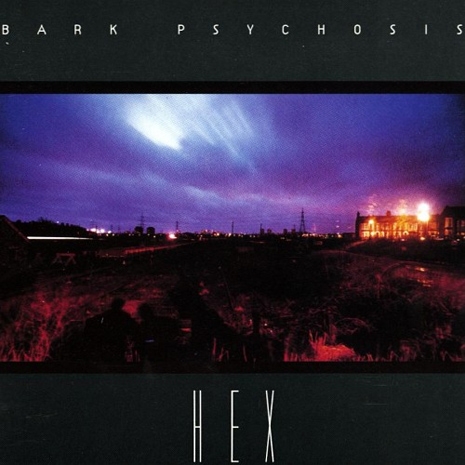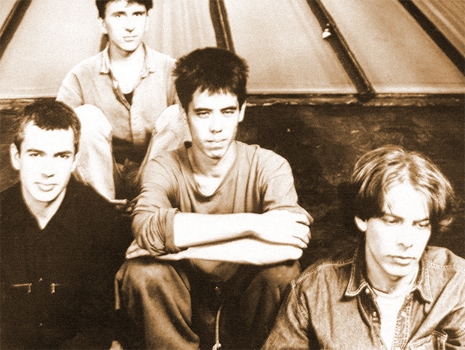
On February 14, 1994, London’s Bark Psychosis released their moody and idiosyncratic debut album Hex, a landmark record noteworthy for its use of rock instrumentation and process in a lot of decidedly not-so-rock ways. In fact, it was so difficult to shoehorn into any one genre that Mojo critic Simon Reynolds is said to have invented the term “Post-Rock” to describe it. (Acknowledging that there are those who disagree with that account, it remains widely accepted lore.) A few months later, Tortoise would release their moody and idiosyncratic debut, and very soon Post-Rock would become a go-to catchall for pretty much any “alternative” music—pardon the scare quotes, but it still irks me how that wretched term stuck—wherein the investigation of timbre and creation of atmospherics were favored over riffage, but that was clearly neither shoegaze, which term had already found backlash and disfavor anyway, nor the also newly-emergent trip-hop, which, though it sometimes toyed with similar textures, moods, and grandiosity, wasn’t rock-derived.
It swiftly became a problematic term. A genre defined so broadly as to encompass the left-field but still fairly straightforwardly rock likes of Trans Am or Don Caballero, droning mood-merchants like Labradford or Bowery Electric, heavy metal bands like Isis, and pensive sophisto-pop like Aloha can’t really usefully be considered a genre at all. But for better or worse, it’s the descriptor we have. Something was happening, and it needed a name.

So, onward—Hex was and is a fucking fantastic atmospheric record, and it’s a shame that it remains such a cult item even among fans of the genre. Arriving two years after the band’s groundbreaking (and still breathtaking) 21-minute single “Scum,” its most obvious antecedents are Talk Talk’s Spirit of Eden and Laughing Stock (and Talk Talk’s drummer would go on to play on Bark Psychosis’ second album), but it also contains strong echoes of minimalism, Kosmische, industrial, prog, and even the occasional African rhythm. Check out the opening track, “The Loom.”
Now check out “A Street Scene” and ponder this trivia tidbit: Bark Psychosis originally formed as a Napalm Death cover band.
You never would have guessed, right? Skipping ahead a bit, “Big Shot” includes two of the tropes that would come to characterize a lot of stereotypical Post-Rock—an ostinato bass groove and a vibraphone. Interesting how Bark Psychosis and Tortoise both hit upon this at the same time, but an ocean apart.
The album’s icily beautiful closer “Pendulum Man” is said to be named after band leader Graham Sutton’s mood swings during the recording, though it seems they could have applied the name to a mood-swingier song.
After Hex, the band went pretty much silent for ten years, save for a 1997 comp, until he resurrected the name for 2004’s Codename: Dustsucker, a noisier effort that equals its predecessor. One 2005 remix EP later, and that was the end of Bark Psychosis. Sutton has had an amazing career as a producer, helming albums for superb artists like These New Puritans, British Sea Power and Jarvis Cocker, and doing remixes for Goldie, and even Metallica. In an interview published last summer, Sutton stated that he was contemplating making new music again. Let’s hope so.
Live footage has been frustratingly difficult to find, but I did turn up this incomplete version of “Big Shot,” from a 1994 performance in Moscow.